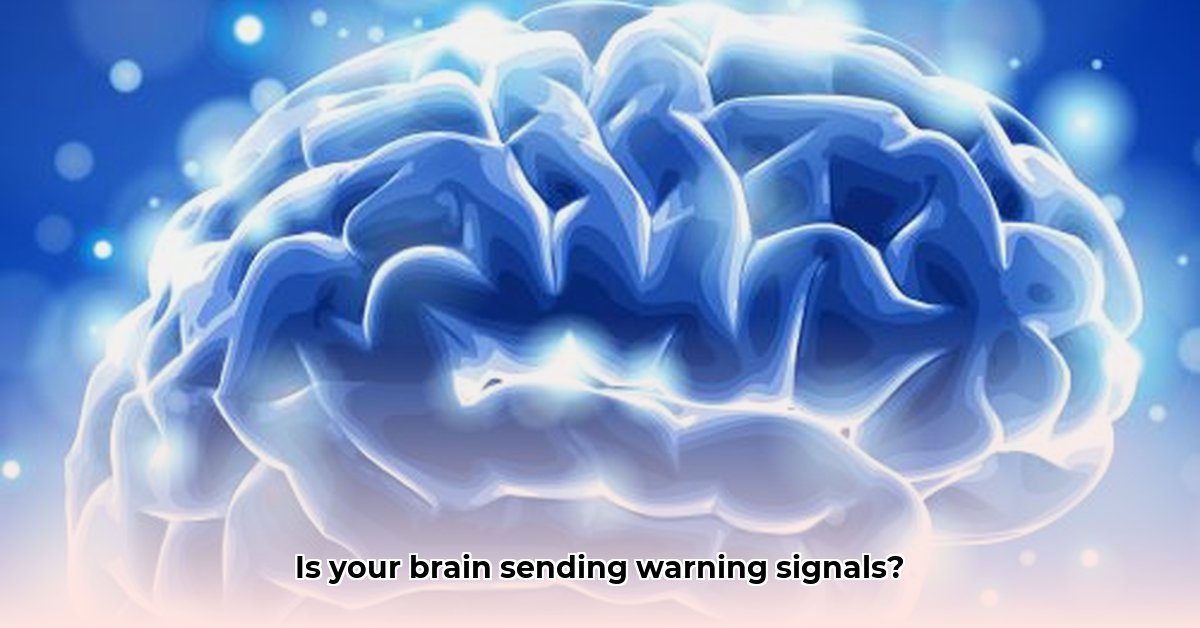
Brain Nerve Damage Symptoms: Understanding the Signs
Eish, experiencing a strange tingling, numbness, or unexplained pain? Understanding the early signs of brain and nerve damage is crucial for getting the right help quickly. This guide will explain common symptoms, potential causes, and effective ways to find relief. We'll keep it straightforward, helping you feel more in control and confident in your next steps.
Recognising Common Symptoms of Brain Nerve Damage
Brain nerve damage symptoms are as individual as fingerprints, varying depending on the location and severity of the damage. Sometimes subtle, other times obvious, here are some key indicators to watch out for:
Numbness or Tingling (Paraesthesia): That familiar "pins and needles" feeling can signal a nerve malfunction. It might occur anywhere – hands, feet, face – following the affected nerve's pathway.
Weakness or Muscle Wasting (Atrophy): Nerve damage weakens the muscles it controls, making everyday tasks challenging. In severe cases, muscles may shrink.
Pain: This isn't your usual muscle soreness. Nerve pain can be sharp, burning, electric-like, or a persistent dull ache, quite different from post-workout pain.
Clumsiness and Coordination Problems: Difficulty balancing, frequent tripping, or struggling with once-easy tasks (writing, using a phone) suggests nerve involvement in motor control.
Abnormal Reflexes (Hyperreflexia or Hyporeflexia): Overactive or underactive reflexes, easily checked by a doctor, indicate nerve issues.
Sensory Disturbances: Altered sensations of touch, temperature, and pressure – intense pain from a light touch, or no feeling at all – are classic signs.
Bowel and Bladder Problems: Nerves control these functions. Damage can cause incontinence, constipation, or difficulty urinating.
Cognitive Changes ("Brain Fog"): Severe cases may affect cognitive function, causing difficulty concentrating, remembering things, or clear thinking. Feeling mentally foggy? It warrants investigation.
Remember, not everyone experiences all these symptoms, and severity varies widely.
Less Common, Yet Significant, Warning Signs
While less frequent, these symptoms warrant immediate medical attention:
Persistent Headaches: Severe or increasingly frequent headaches, especially with other neurological symptoms, need a doctor's evaluation.
Dizziness and Vertigo: A spinning, unsteady sensation points to potential nerve problems.
Vision Changes: Blurred or double vision, or changes in visual fields, require prompt medical attention.
Hearing Loss: Believe it or not, nerve damage can sometimes affect hearing.
Speech and Swallowing Difficulties (Dysphagia): Problems speaking clearly or swallowing are significant warning signs.
When to See a Doctor: Act Now!
Don't delay seeking medical attention if you experience persistent or worrying symptoms. Early diagnosis is key! A thorough neurological examination can pinpoint the cause and guide treatment.
Understanding the Causes of Brain Nerve Damage
Several factors can cause nerve damage:
Trauma: Accidents (car crashes, falls) can directly injure nerves.
Diseases: Conditions like diabetes, multiple sclerosis (MS), and certain infections can indirectly damage nerves.
Toxins: Exposure to specific toxins or medications can harm nerves.
Genetic Factors: Nerve damage sometimes has a hereditary component.
Effective Management of Nerve Damage Symptoms: A Holistic Approach
Key Takeaways:
- Neuropathy affects the nervous system, causing diverse symptoms.
- Early diagnosis is crucial for successful management.
- Effective management is multi-faceted and requires a tailored approach.
- Treatment targets both the underlying cause and symptom relief.
Understanding Nerve Damage and its Impact
Neuropathy disturbs communication between your brain and body, like a faulty wiring system. This disruption causes various problems depending on the affected nerves.
Effective Management Strategies
There’s no one-size-fits-all solution – management depends on the cause and severity of the nerve damage. Treatment options include:
- Medication: Pain relievers, antidepressants, and anticonvulsants help manage pain and other symptoms.
- Physiotherapy: Exercises and stretches improve strength, mobility, and range of motion.
- Complementary Therapies: Acupuncture, massage, etc., may provide relief (discuss with your doctor first).
- Surgery: In some cases, surgery repairs damaged nerves or relieves pressure.
Lifestyle Changes for Improved Management
A healthy lifestyle plays a crucial role:
- Diet: A balanced diet rich in fruits, vegetables, and whole grains supports overall health, including nerve health.
- Exercise: Gentle, regular exercise improves blood circulation, aiding nerve healing. Don't overexert yourself.
- Stress Reduction: Manage stress through techniques like yoga or meditation to reduce symptom severity.
The Importance of Mental Well-being
Living with nerve damage can be emotionally challenging. Consider these coping strategies:
- Support Groups: Connecting with others facing similar challenges provides emotional support and practical advice.
- Therapy: A therapist can help manage emotions, develop coping mechanisms, and reduce stress.
Remember, early detection and appropriate care dramatically improve recovery chances and quality of life. Don't hesitate to ask questions and actively participate in your healthcare. You've got this!